Original equipment manufacturers (OEMs) are critical to the global supply chain. Industries ranging from automotive to medical rely on OEMs to produce reliable, high-quality components.
However, today OEMs find themselves navigating a new era of uncertainty. B2B buyer expectations are changing rapidly, and business models are adjusting accordingly. For example, an increase in counterfeit parts masquerading as OEM components means that more OEMs are turning to tracking and traceability practices such as labeling components with durable barcode labels and asset tags to track items throughout the supply chain and verify the authenticity of OEM parts. (Learn more about traceability and why it’s important.)
With many industries in flux, it’s critical for OEMs to stay updated on the latest developments in their field so they can stay agile. Consult these top 50 articles, blogs, organizations, and resource directories to stay abreast of the latest news and best practices for OEMs and keep an eye on the competitive landscape.

Growth is a concern for any industry, but this guide from Entytle shares actionable tips for OEMs to scale up their operations. They argue that data science and agile analytics are the most valuable way for OEMs to grow beyond 2022.
Three key points from 4 Best Practices to Drive Double-Digit OEM Growth in 2021:
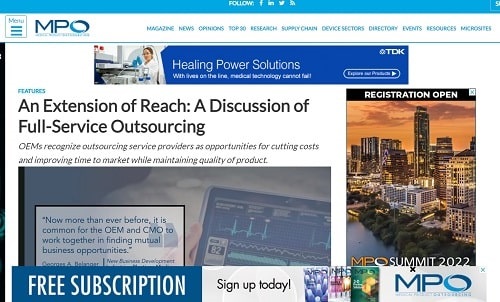
How can your brand cut costs? Outsourcing is becoming an increasingly popular way to save time, cut costs, and improve time to market. This roundtable discussion from MPO describes how OEMs can embrace outsourcing for maximum efficiency.
Three key points from An Extension of Reach: A Discussion of Full-Service Outsourcing:
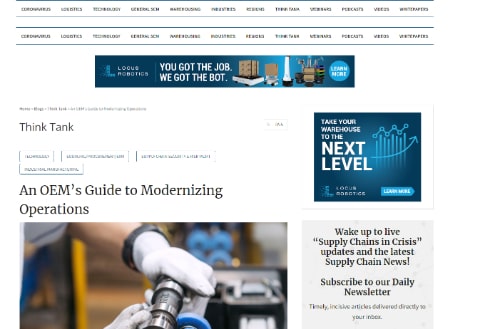
Technology is an essential tool for OEMs, especially in a fast-paced environment like manufacturing. This guide from Supply Chain Brain shows how OEMs can modernize their operations with fewer growing pains.
Three key points from An OEM’s Guide to Modernizing Operations:
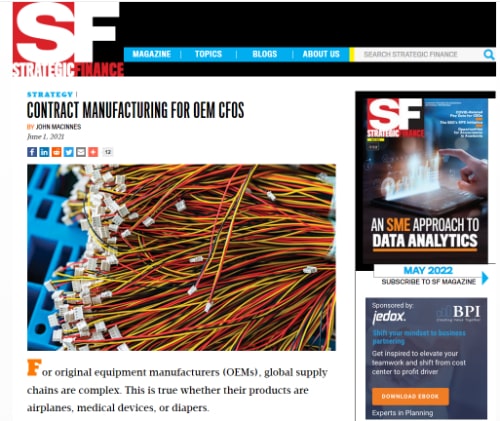
COVID-19 prompted many OEMs to reconsider how they do business. This guide from Strategic Finance goes in-depth on the topic of contract manufacturing, as well as how OEMs are using it to overcome pandemic-related supply chain challenges.
Three key points from Contract Manufacturing for OEM CFOs:
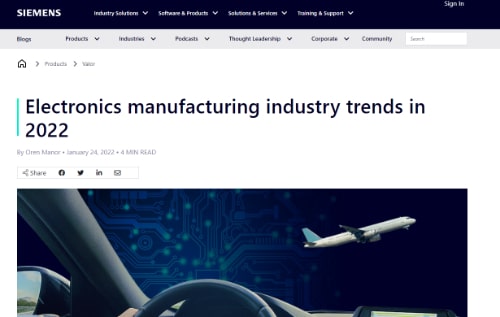
Does your company specialize in electronics components? Several new trends are on the horizon for 2022. Ensure that your brand doesn’t miss out by consulting this guide from Siemens.
Three key points from Electronics manufacturing industry trends in 2022:
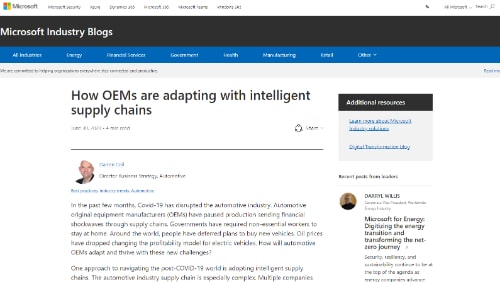
Automotive OEMs experienced significant disruptions as a result of COVID-19 lockdowns. Consult this article to see how the pandemic affected automotive supply chains and learn about the steps OEMs can take to create intelligent supply chains.
Three key points from How OEMs are adapting with intelligent supply chains:
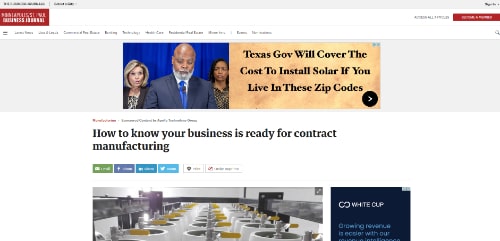
Contract manufacturing is a great way to increase your OEM’s capacity, but is now the right time to contract out your manufacturing? Consult this guide to determine whether outsourcing is the answer.
Three key points from How to know your business is ready for contract manufacturing:
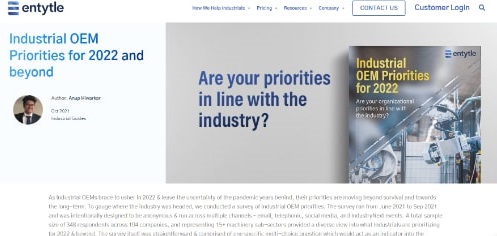
Entytle conducted a survey of 300+ industrial OEMs from June 2021 to September 2021. Their insights, shared in this guide, reveal OEM priorities for 2022 and beyond.
Three key points from Industrial OEM Priorities for 2022 and beyond:
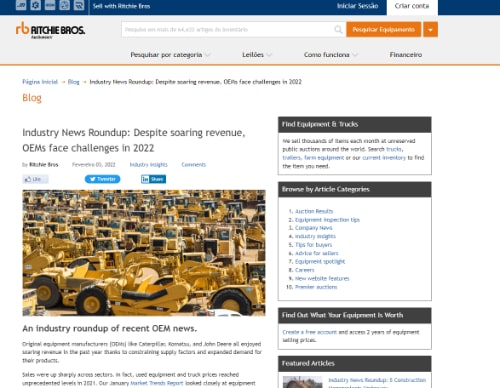
Demand (and revenue) is up for OEMs, but challenges are more difficult and numerous than ever before. Check out this guide to see several examples of OEM challenges through the pandemic to the present day.
Three key points from Industry News Roundup: Despite soaring revenue, OEMs face challenges in 2022:
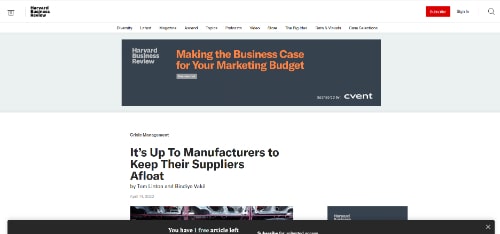
Although it’s tempting to operate in a bubble, OEMs rely on their suppliers to manufacture products. This article from the Harvard Business Review argues that OEMs have a duty to help their suppliers stay in business—or risk experiencing the pinch of the pandemic firsthand.
Three key points from It’s Up To Manufacturers to Keep Their Suppliers Afloat:
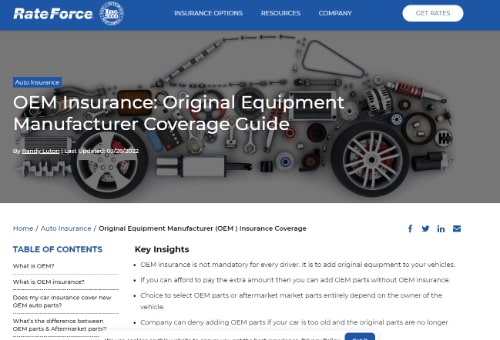
It’s an unfortunate reality of business, but insurance is a must to cover your operations against the unknown. This guide from RateForce explains how OEM insurance coverage works for consumers.
Three key points from OEM Insurance: Original Equipment Manufacturer Coverage Guide:
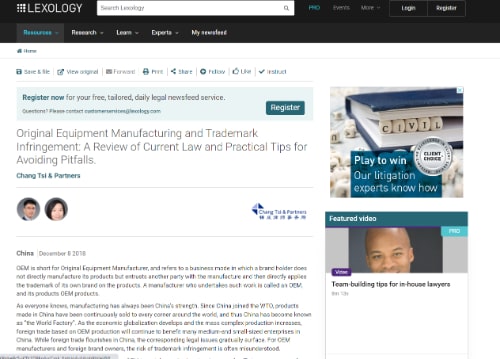
Trademark infringement is an expensive but prolific problem for OEMs. Read this paper from Lexology to understand the extent of the problem, as well as practical tips for combatting trademark infringement.
Three key points from Original Equipment Manufacturing and Trademark Infringement:
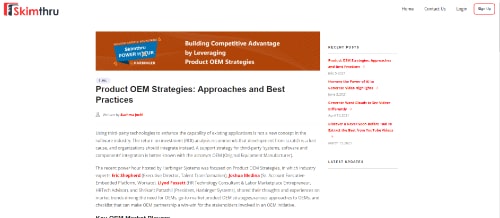
Many OEMs rely on third-party platforms or tools to keep their businesses running efficiently. This guide from Skimthru explains how OEMs can best streamline their OEM strategies with the right approaches.
Three key points from Product OEM Strategies: Approaches and Best Practices:
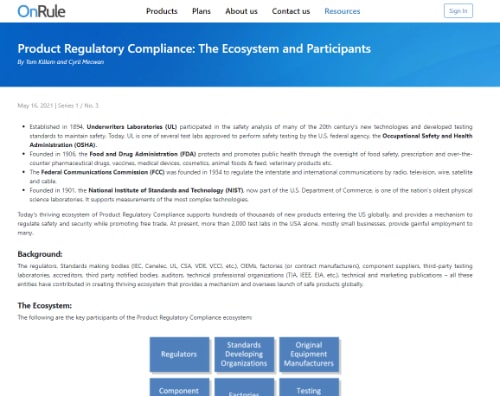
Regulation is critical for keeping consumers safe, but it can be a minefield for OEMs. This guide from OnRule explains how OEMs can navigate an increasingly complex regulatory landscape.
Three key points from Product Regulatory Compliance: The Ecosystem and Participants:
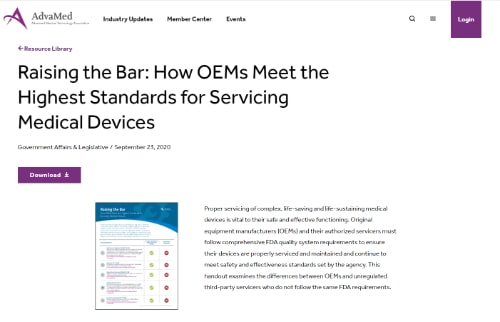
The medical device market is worth billions in the United States alone. Many OEMs service the medical device industry, but comprehensive requirements make it challenging to operate efficiently. Consult this guide from AdvaMed to see how OEMs can meet medical device standards.
Three key points from Raising the Bar: How OEMs Meet the Highest Standards for Servicing Medical Devices:
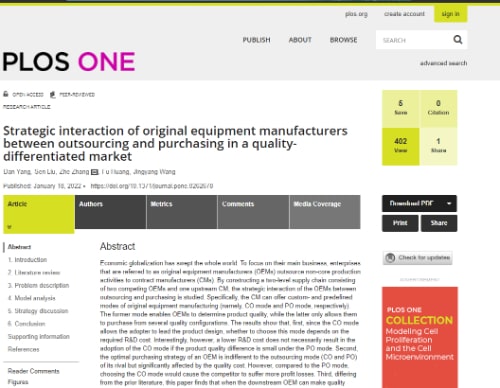
This academic paper from PLOS ONE shows how reliant OEMs are on contract manufacturers (CMs). Consult this thorough guide to learn how the current OEM environment affects global supply chains as well as profitability.
Three key points from Strategic interaction of original equipment manufacturers between outsourcing and purchasing in a quality-differentiated market:
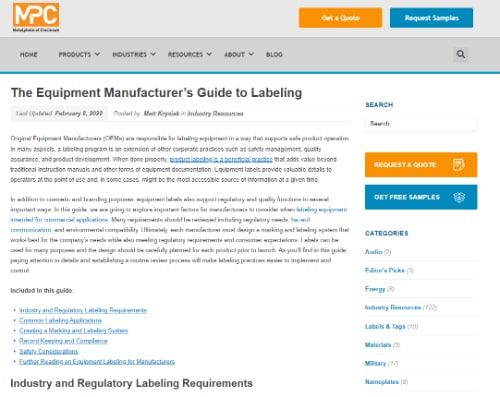
Does your brand produce equipment? If so, you’re required to label equipment with important safety information in many industries. Check out this guide to learn how OEMs are responsible for equipment labeling.
Three key points from The Equipment Manufacturer’s Guide to Labeling:
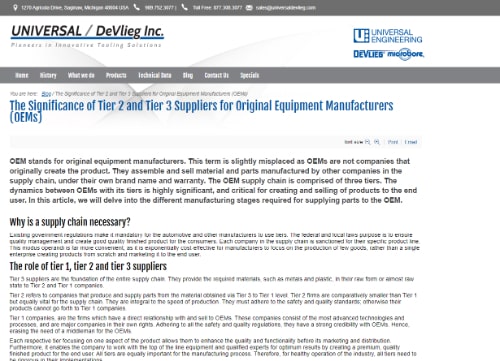
The OEM supply chain is complex—and inefficiencies can significantly hinder an OEM’s ability to stay profitable. This guide from Universal/DeVlieg describes the different tiers of OEM suppliers and how they can affect your business.
Three key points from The Significance of Tier 2 and Tier 3 Suppliers for Original Equipment Manufacturers (OEMs):
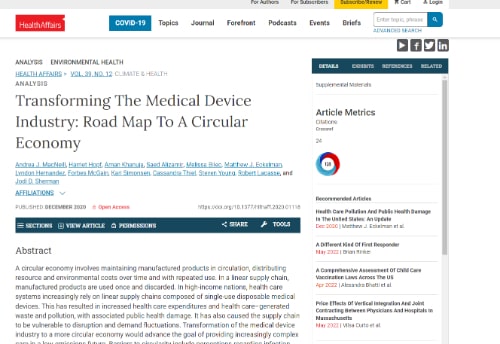
OEMs are essential to manufacturing effective medical devices, but the medical device model can be flawed. Read this guide from HealthAffairs to see how a circular economy can reduce waste and improve the environmental impact of the medical device market.
Three key points from Transforming The Medical Device Industry: Road Map To A Circular Economy:
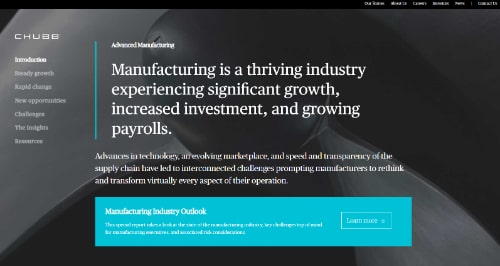
What’s next for the future of manufacturing? Consult Advanced Manufacturing’s blog to learn about US manufacturing’s industry outlook.
Three key articles from Advanced Manufacturing:
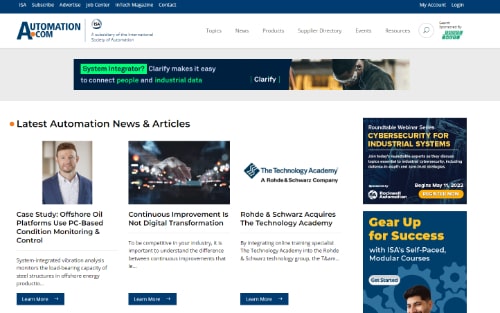
Automation is key for greater OEM efficiency. The Automation.com blog not only showcases what’s possible with automation but showcases its benefits across a wide spread of industries and applications.
Three key articles from Automation.com:
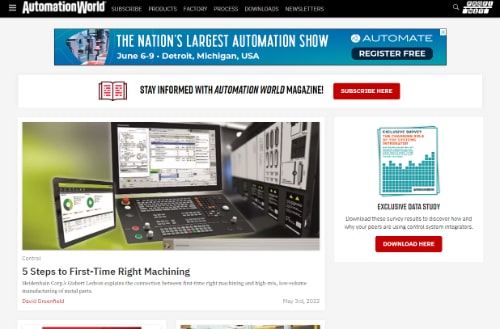
AutomationWorld is another automation-centric blog with valuable insights for OEMs. Consult their blog for information on robotics, AI, and other automation trends.
Three key articles from AutomationWorld:
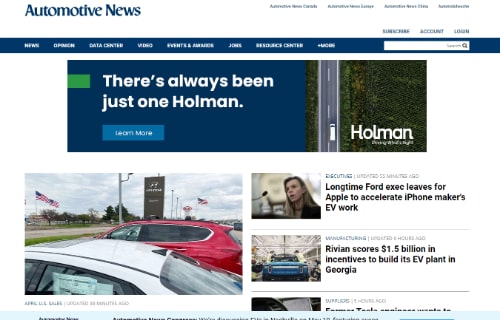
While Automotive News isn’t just concerned with manufacturing topics, there are a lot of valuable insights here for OEMs. Check out their Suppliers and Industry Innovations sections to see the latest updates in automotive OEM.
Three key articles from Automotive News:
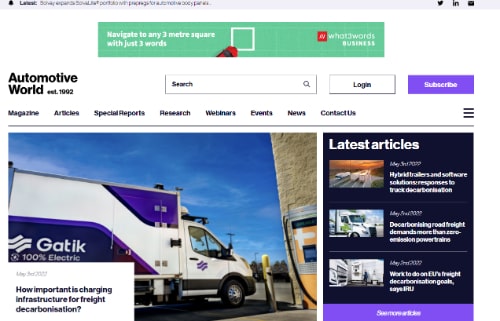
Although it isn’t dedicated just to OEMs, there’s plenty of valuable OEM-related content on Automotive World. Consult this blog to learn about upcoming automotive trends and manufacturing regulations.
Three key articles from Automotive World:
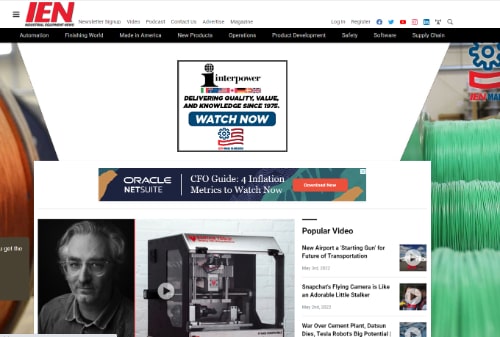
Whether it’s software, automation, safety, or the supply chain, IEN offers valuable information for OEMs. If you service industrial clients, IEN’s insights are incredibly useful for overcoming challenges while meeting client demands.
Three key articles from Industrial Equipment News (IEN):
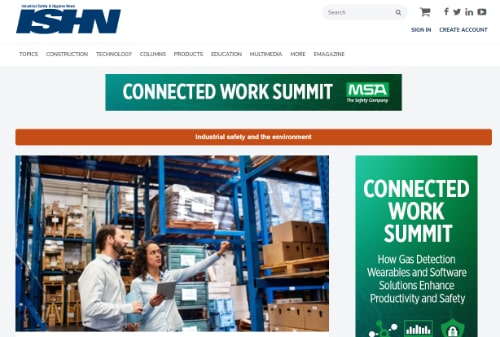
Safety is paramount in a manufacturing environment. Although ISHN’s blog doesn’t cater just to OEMs, its topics will definitely be of interest to OEMs that need to comply with safety regulations.
Three key articles from Industrial Safety & Hygiene News (ISHN):
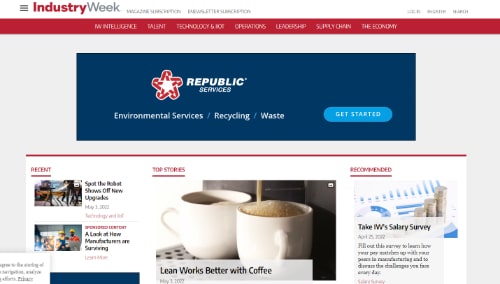
Industry-specific concerns will always be a challenge for OEMs. Consult IndustryWeek’s Operations and Supply Chain categories to stay on top of the latest innovations.
Three key articles from IndustryWeek:
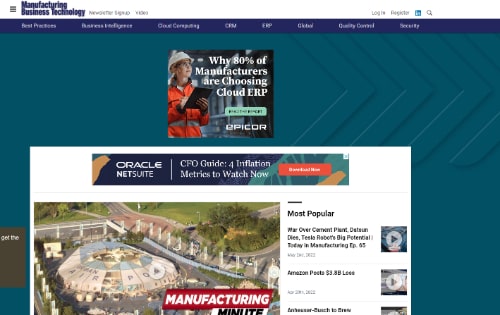
Your business relies on technology to run smoothly. Check out these blogs from Manufacturing Business Technology to learn about U.S. manufacturing and the technology powering it.
Three key articles from Manufacturing Business Technology:
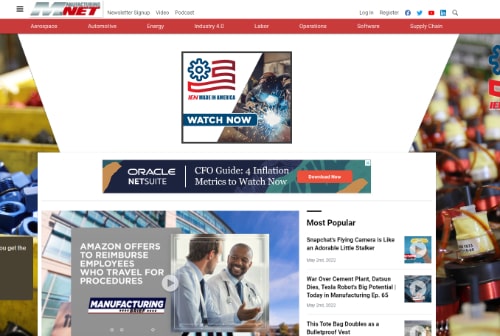
Whether you serve the aerospace, automotive, or energy sector, Manufacturing.net has valuable content that can help you streamline your operations. Check out their blog to see how supply chain, operations, labor, and other issues can affect manufacturing.
Three key articles from Manufacturing.net:
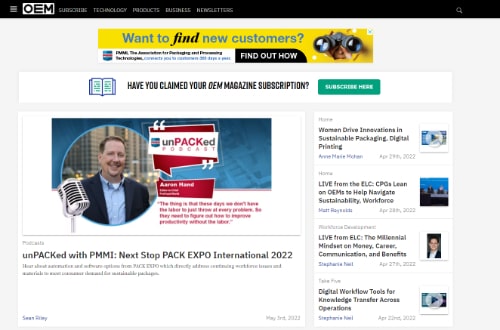
OEM Magazine shares OEM-centric content that ranges from technology to products to business operations. Check out their blogs to learn about upcoming trends and changes that affect OEMs specifically.
Three key articles from OEM Magazine:
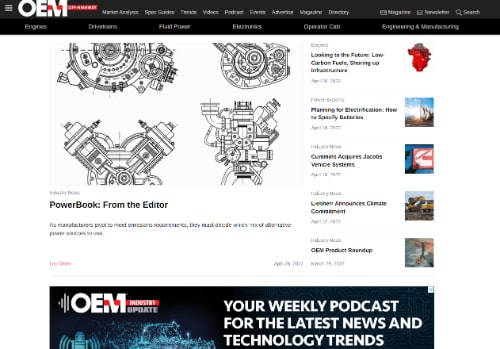
OEM Off-Highway caters to construction and agricultural OEMs. Consult their blog for industry-specific guidance on engines, drivetrains, electronics, and engineering.
Three key articles from OEM Off-Highway:
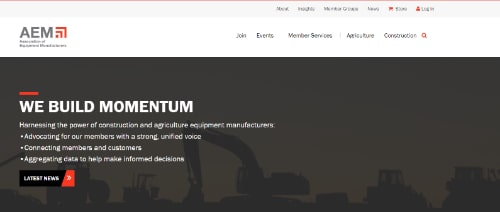
AEM unites OEMs that work in the construction and agriculture industries. Consult their website for data-driven industry reports as well as networking opportunities.
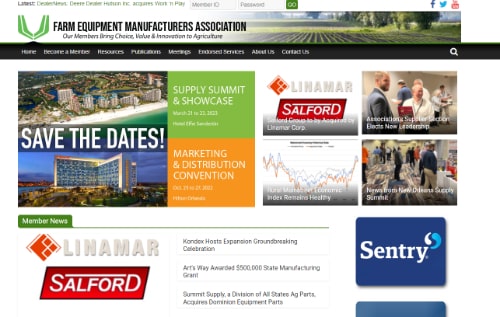
Do you work in the agriculture industry? If so, The Farm Equipment Manufacturers Association is a great place to find resources for your industry. Become a member to join regular meetings, learn about relevant endorsed services, and access industry publications for OEMs.
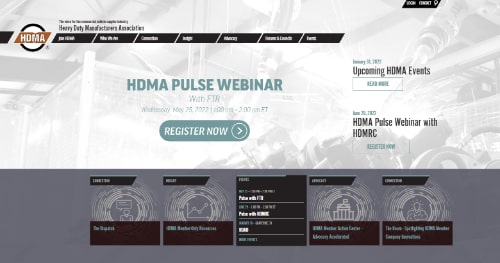
The Heavy Duty Manufacturers Association is perfect for OEMs that specialize in heavy machinery. This organization advocates for policies that benefit manufacturers and provides members-only publications, forums, and events.
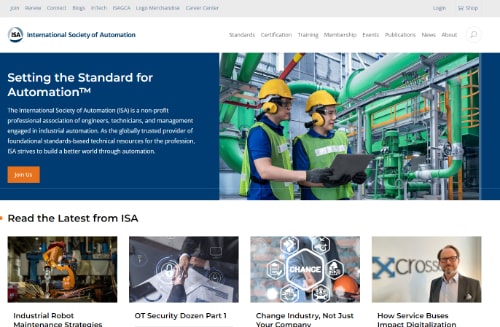
ISA is a non-profit that’s designed to advance automation across several industries. Follow its standards and certifications to keep your operations up-to-date with the latest automation technologies.
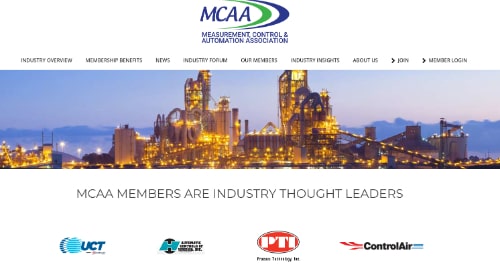
The MCCA provides resources to industrial OEMs. As a member, you can enjoy benefits such as regular webinars, data-driven trends and reports, and even a career center.
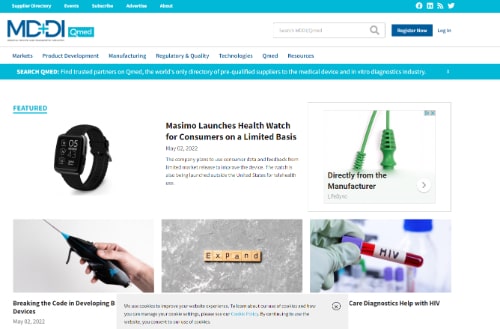
Do you service medical clients? MD+DI is an invaluable resource for OEMs that provide diagnostic products and medical devices. Learn about upcoming product developments and even regulatory changes to stay one step ahead.
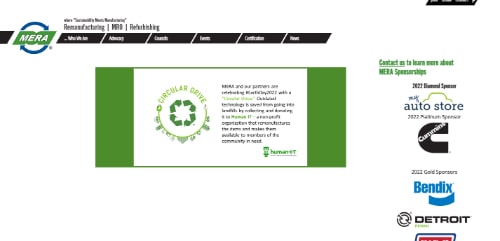
Sustainability is a hot-button issue for consumers, and OEM clients often feel the need to reduce their impact on the environment. Through MERA, you can earn sustainability certifications, attend events, and advocate for sustainable manufacturing initiatives.
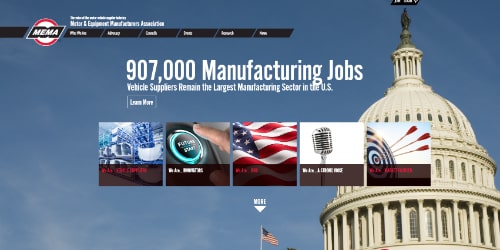
MEMA is designed to give vehicle suppliers access to advocacy, networking, and industry research. Consider becoming a member of MEMA to incorporate their best practices into your OEM operations.
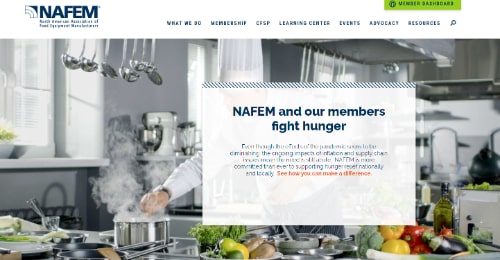
Food manufacturing has unique challenges, but NAFEM gives OEMs a centralized place to optimize their businesses. Consult NAFEM for its learning center, national events, advocacy, and more.
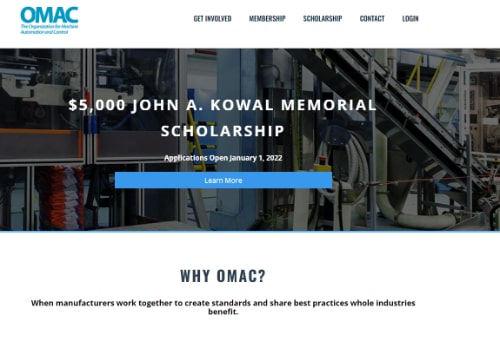
Through OMAC, OEMs can have an impact on the future of automation. OMAC brings manufacturers together to determine professional standards for digital twins, remote access, and much more.
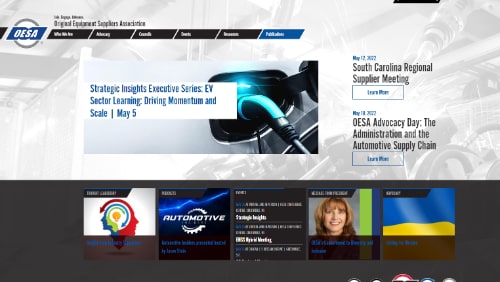
OESA is a valuable resource for automotive OEMs. Attend their events, join peer group councils, or read their industry analyses to get timely information on automotive manufacturing.
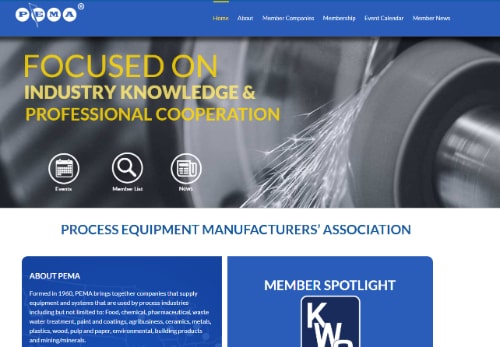
Since 1960, PEMA has been a valuable resource to OEMs in the food, pharmaceutical, agricultural, and construction industries. As a PEMA member, you can access networking, industry surveys, data-driven forecasting, professional development, and more.
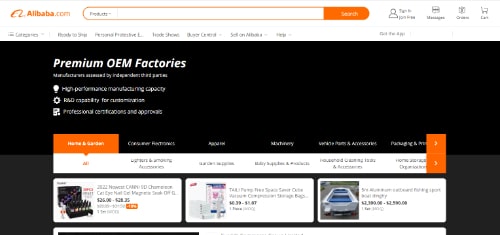
Famed eCommerce giant, Alibaba, is a surprisingly effective place to connect with manufacturers. Check out their directory to find certified, high-performance manufacturers that are capable of conducting their own R&D.
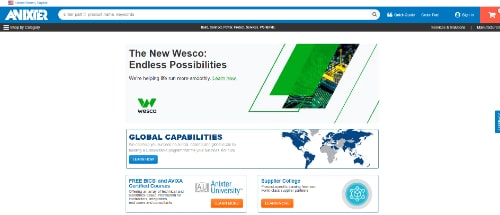
Do you manufacture electronic devices? A feature on Anixter can put your OEM brand in front of a range of clientele from across the globe.
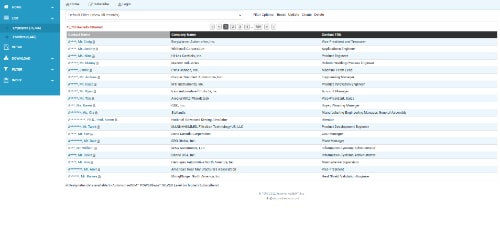
It might not have the glamor of other OEM directories, but Automotive OEM’s subscription database is perfect for sourcing data. Access data on employees or facilities to optimize your automotive OEM.
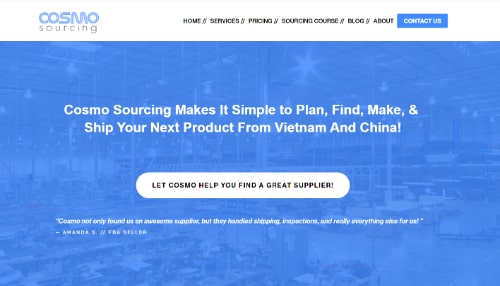
Are you revamping your supply chains? Cosmo Sourcing is a valuable directory that helps OEMs find the best suppliers in China and Vietnam.
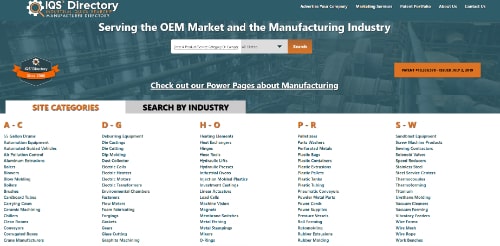
IQS Directory displays a robust list of industrial manufacturers, which you can search by category or industry. Consult IQS to collect quotes, access supply chain research, and learn more about other OEM manufacturers.
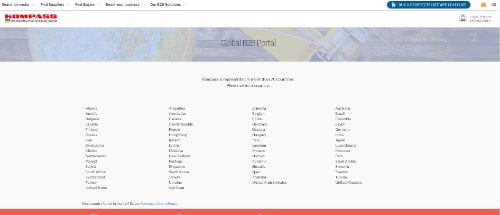
Kompass is a global B2B directory that helps OEMs find suppliers and buyers. If you want to boost your business, check out Kompass’s data to connect with other professionals across the globe.
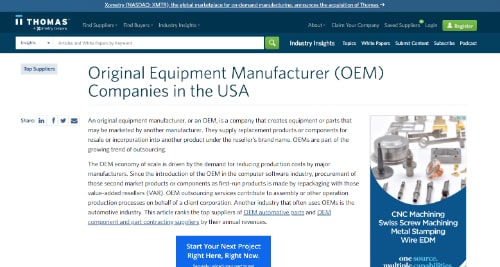
Are you an OEM based out of the United States? Consult this directory from Thomas to find the top OEMs and contract manufacturers in the United States.
Our sales engineers are experts in automatic asset tracking, tagging and identification,a nd can answer all your questions. Get in touch now.
Lets Talk ›